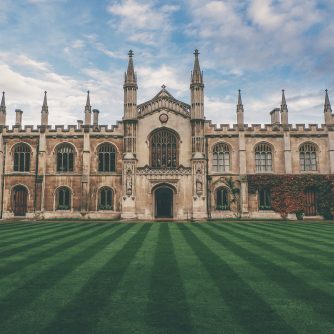One of the central aspects of the culture of any church is its theological identity. We have our doctrinal statements, our confessions and our associations that define where we stand on pertinent theological issues. We ground the church on central and distinguishing doctrines in order for the church to have a theological foundation. Paul gave Timothy the same thing in a short but crucial passage in 1 Timothy regarding the behavior and the overall make-up of the local church. For Paul, the “Pastoral Epistles” were his counsel to a young pastor (both Timothy and Titus) regarding the church’s spiritual fidelity to the gospel. Central to that fidelity is its conviction regarding the gospel as it relates to the person and work of Christ. Paul uniquely tethers the holiness of the church to the “mystery of godliness” regarding the incarnation, which at first glance seems like an odd place to ground the conduct of the church. This “mystery” however, is essential to the life-line of the local church and its ability to glorify God in all it does.
THE THEOLOGICAL CONVICTION OF THE CHURCH
1 Timothy 3:14–16 14 I am writing these things to you, hoping to come to you before long; 15 but in case I am delayed, I write so that you will know how one ought to conduct himself in the household of God, which is the church of the living God, the pillar and support of the truth. 16 By common confession, great is the mystery of godliness: He who was revealed in the flesh, Was vindicated in the Spirit, Seen by angels, Proclaimed among the nations, Believed on in the world, Taken up in glory.
Paul calls the Church the “pillar and support of the truth” which also implies the advancement of the truth through the preaching of the gospel and the ministry of the Word. This then implies the presence of genuine gospel zeal. The Church of the living God should be alive! There could be no greater contradiction than for the Church of the living God to be dead and lifeless. This phrase also implies both a blessing and a burden. It is a blessing of course because in our post-modern world where people lack the fundamentals of reality, morality, ethics, logic, which is to say they lack a proper worldview; the church is founded upon the truth and supports the truth as it is revealed by God and contained in his word. The church is also tasked with knowing the truth, believing the truth, disseminating the truth, supporting, defending and confessing the truth of the faith.
Our entire existence as a church is based on the truth. The truth of God’s existence, the tenacity of God’s word, the exclusivity of Jesus Christ, the doctrine of the Trinity, the horrors of sin and the glories of salvation. Lastly, we confess the truth together, “By common confession.” This also is important for a healthy church to grasp. Our corporate identity is God’s way of reminding us that we need one another (1 Cor. 14.21). As independent as some of us may be, biblical Christianity is totally contrary to the world’s notion of self-reliance, isolationism, independence and individualistic attitudes. Like any family, each member of the household is essential for it to be truly loving and united (cf. Mk. 3.25). When someone is isolating themselves in the home, we rightly identified that as strange behavior and calls for serious concern and even confrontation.
This confession is also tremendously important, “great is the mystery of godliness.” Notice by this phrase that what we confess is the fundamental realities that accompany true godliness which is to say, genuine religion. And that mystery is the core and essence of the Church. It is what sets us apart from all other idolatrous gatherings of all other religions and pagan forms of spirituality. We worship the true and living God and that constitutes a vital relationship with God through his Spirit who enables us to live lives that are pleasing to Him (cf. Gal. 5.22-26).
Notice, that word, “godliness,” as it must become apparent that what is most fundamental to the church’s confessed life and identity pertains to its conduct, its holiness, its purity, its godliness as it conforms to God’s word and resists conformity to the world (Rom. 12.1-3; 1 John 2.15-17). It is not the church’s effectiveness that matters most, it is not the church’s size that impresses God, or apparent success, or influence, or energy and zeal; neither the personality of the preacher or the influence it has on the culture. It is not the church’s popularity or materialistic blessings that distinguishes it as God’s household; holiness alone truly distinguishes the church of God because when it is holy it testifies of the holy God who saved it. We are His temple and we are called to be holy even as he is holy (1 Cor. 3.16-17; 1 Pet.1.15-16). As David Wells once put it:
If we lose sight of the holiness of God, we lose sight of [our] entire faith and we lose the right to call ourselves protestants in any recognizably historical sense.1
THE CORE OF THE CHURCH
The gospel is the core of the Church, but the gospel contained in this ancient creed focuses on the dual estates of Jesus. These dual estates are what we confess about Jesus in terms of his incarnation, death and exaltation. In a word, the essence of our faith revolves around the dual estates of Christ as it consists of both Jesus’ state of humility culminating in his death, as well as his state of exaltation culminating in his resurrection and ascension to the right hand of the Father (cf. 1 Cor. 15.1-4; Heb. 1.1-4). Our whole Christian life revolves around what Peter calls Jesus’ sufferings, and the consequent glories (1 Pet. 1.11).
DIVINE CONDESCENSION
“revealed in the flesh”
Jesus’ revelation in the flesh is his humiliation. It is his suffering, his death, burial and rejection at the hands of the world and its rulers (1 Cor. 2.8). Great is the mystery of “godliness” but notice that the holiness of the Church is not rooted in itself. Paul does not supply an example of our piety. It is the holiness of Christ that is most important. We who are connected to him by grace through faith, confess and conform to that holiness all the life long. In this way, our union with Christ and these dual estates, becomes the very core of our own identity as we live and suffer with him. It is how we are going to take up our cross. It is how we are going to do our share in filling up Christ’s afflictions, and it is how we also must understand our eschatological purpose, for, we are called not only to suffer with him but also to reign with him in glory, his glory (John 17.22-24; 2 Tim. 2.12).
DIVINE EXALTATION
“taken up in glory”
Part of Jesus’ exaltation begins with a vindication in the Spirit (both in his earthly ministry and his resurrection). His visibility before the “angels” is interesting but we know that Jesus at various times was accompanied and visited by angels (cf. Mk. 1.13; Lk. 2.8-14). His proclamation “among the nations” is also the universal declaration of the gospel following his resurrection, ascension and out-pouring of the Spirit upon the Church at Pentecost and the evangelization of the world throughout all of time. This is thus a way of talking about Christology in total, present and future.
To live within these dual estates is to live within the already not yet tension of eschatology- first for Christ, then for the believer. This means that our lives are cruciform. We seek to live our lives like Christ because it is to Christlikeness that we have been called, not just in the virtues we exhibit but in the future that we face eschatologically. The Church at large has no future without Christ, and the local church does not either. He must remain the all-important center (cf. 1 Cor. 2.2; Col. 1.28).
We too will go through the suffering on the way to the crown. We too are presently called to suffer with him. We are called to take up our cross in self-denial, to endure persecution, to experience betrayal, disappointment and ten thousand woes of a fallen world. We too must walk through the valley of the shadow of death. But of course, we are to fear no evil for he is with us. We are called to be conformed to his death and partake of His sufferings (Phil. 3.11), and again, to fill up the measure of what is lacking or remaining of the afflictions ordained for Christ’s body the Church (Col. 1.27; cf. Acts 9.15-16). But this is not an end of itself. That would be futility. For the believer, our suffering is redeemed by the gospel. “Blessed are you when people insult you and persecute you and falsely say all kinds of evil against you because of Me” (Mt. 5.11).
While we are called to suffer with and for him now, we are nevertheless already partakers of the victory of Christ now through our union with Christ, the “vindicated” One. Like Christ, we are promised a vindication in the “Spirit.” This is an eschatological advancement or the final installment of God’s grace in our lives. Through the Spirit of course, Jesus offered his blood for our redemption (Heb. 9.14), and through the Spirit, Jesus was also gloriously resurrected from the dead (Rom. 1.4; 8.11). This is his vindication, and that will be our vindication as well. This is why we are not looking for earthly vindication, earthly triumph, temporal victory, earthly conquest, earthly dominion, or cultural reconstruction; the heavenly comes after the earthly and he is preparing a place for us (cf. 1 Cor. 15.46-49; John 14.1-3). The dual estates are not just the path Jesus took, but the pattern he left for his Church and every believer joined to Him by faith, “the mystery of godliness.”
This exaltation then cannot be conceived of apart from an inter-dimensional translation, for he was “taken up in glory.” Hebrews reminds us in several places that this was in fact done not only for our redemption but as a model for our own future heavenly ascent. He is our “forerunner”:
Hebrews 4:14 14 Therefore, since we have a great high priest who has passed through the heavens, Jesus the Son of God, let us hold fast our confession.
Hebrews 6:19–20 19 This hope we have as an anchor of the soul, a hope both sure and steadfast and one which enters within the veil, 20 where Jesus has entered as a forerunner for us, having become a high priest forever according to the order of Melchizedek.
As the author of Hebrews taught the church then, every church that lives by this pilgrim mentality that we are passing through a strange world, a world where we do not belong, and a world and a kingdom, the “city of man” destined to be shaken (Heb. 12.26-29); that church is going to be taken up into glory as it enters eternal sabbath rest in the city of God (Heb. 4.9-10).
The “mystery of godliness” as we look at the dual estates of Christ, is telling us that godliness is found in suffering and dying, in perseverance and endurance, and in vindication and exaltation. The church that seeks to remove this tension through either a prosperity-driven gospel, a therapeutic message, a triumphalist gospel of earthly dominion, or an escapists gospel of sensational eschatology, threatens to do violence to the gospel itself. The gospel of the dual estates of Christ alone will ground the church, empower its preaching, foster endurance and purify its people.
Finally, this is a “mystery.” And part of that mystery consists in the antithesis of what we have in Christ versus what there is to be found in the world of sin and misery. This mystery therefore is developing as the text goes on into what Patrick Fairbairn called “the evolution of a mystery.” In this mystery, heaven and earth are shown how “far asunder” they really are:
The world and glory, how far asunder, and in a sense antagonistic!— the one above, the other beneath; the one suggesting thoughts only of celestial brightness and purity, the other replete with numberless forms and appearances of evil— the region of sin, disease, and death. In this, therefore, Christ, as the perfect Redeemer, was incapable of residing, yet is spiritually present and believed on to the temporal and eternal good of His people; while Himself, as the fit inhabitant of a better region, received up in glory— the gory which He had with the Father before the world was.2
Soli Deo Gloria
1 David F. Wells, The Bleeding of the Evangelical Church (The Banner of Truth Trust, 2021) 15.
2 Patrick Fairbairn, 1&2 Timothy and Titus: Geneva Series of Commentaries (The Banner of Truth Trust, 2002) 166.






